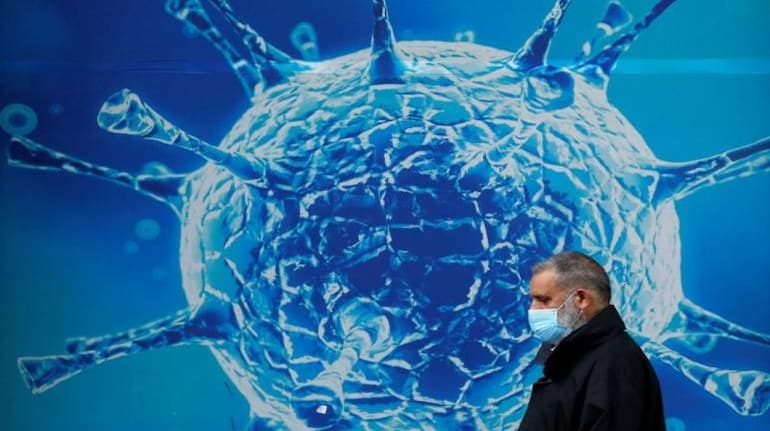



India, with its population of 1.3 billion people, has the world's second-highest number of coronavirus cases, now more than seven million, but far fewer reported deaths than other badly-hit countries.
The figures have baffled experts, with explanations ranging from the young population to immunity given by other endemic viral diseases and under-reporting.
Here are some of the questions and theories raised by India's pandemic statistics:
- What are the figures? -
India said on Sunday there had been 108,334 fatalities from Covid-19 since the first death was reported in mid-March.
The world's second-most populous nation has the lowest number of deaths per 100 confirmed cases -- the observed case-fatality ratio -- among the top 20 worst-affected nations at 1.5 percent, according to a Johns Hopkins University tally.
In comparison, the United States, the most infected country, has a death rate of 2.8 percent. India's number of deaths per 100,000 population is 7.73, compared with 64.74 in the United States.
- Younger population -
Older people suffering from conditions such as diabetes and heart disease have become a particular target of the pandemic but India has a young population with a median age of 28.4, according to the UN World Population Prospects report.
In comparison, France -- which has reported almost 700,000 cases and more than 32,000 deaths for a death rate of 4.7 percent -- has a median age of 42.3.
- Late start, strict lockdown -
The Indian government says the first infection was detected on January 30, with numbers passing 100 in mid-March.
By that time, the epidemic was already raging across Europe. Italy had reported more than 24,000 infections and almost 2,000 deaths, while France recorded nearly 5,500 cases and around 150 deaths.
Prime Minister Narendra Modi ordered a nationwide lockdown from March 25 that severely limited movement. That gave India time to prepare for the pandemic, while experts say the strict lockdown may have helped doctors learn from the experiences of other countries.
"Many of the treatment protocols were much better stabilised (by that time), whether it was oxygen use or ICU use," Anand Krishnan, a community medicine professor at the All India Institute of Medical Sciences in New Delhi, told AFP.
- Possible immunity -
Virologist T. Jacob John and other experts told AFP it is possible that other viral diseases such as dengue fever, which is endemic in India, may have given the population some antibody protection against the coronavirus.
Others say it is also plausible that exposure to other milder coronaviruses could give some cross-immunity. But all experts say more research is needed into this line of defence.
- Under-counting -
India already does not count all deaths. The problem is more acute in rural areas where 70 percent of the population live. Many rural deaths are not recorded unless the person has been in a hospital.
This has been accentuated during the coronavirus. In many cities, tallies given by city governments and at cemeteries and crematoria do not match. Activists accuse some states of deliberately blaming other conditions for Covid-19 deaths.
"Our poor routine death surveillance system... misses many deaths in the first place," Bangalore-based community medicine expert Hemant Shewade told AFP. He reckons that only one in five deaths is recorded with a cause.
Shewade, who has been analysing India's official toll data, said many suspected Covid-19 deaths were not being recorded.
Government-conducted serological surveys -- which test blood for antibodies to estimate how many have fought off the virus -- indicate that 10 times the official number of people may have already been infected, meaning many deaths could have gone unreported, he added.
Meanwhile in some cases, the coronavirus may not be listed as the cause of death for patients with other medical conditions.
- How to boost accuracy -
Experts say greater toll accuracy is possible if is there is more testing, better recording of deaths and post-mortem examinations are carried out on suspected victims.
Monitoring excess mortality -- the number of deaths above the "normal" figure -- as well as deaths at home could also shed some light on the real toll, Shewade said.
Mumbai, the country's worst-hit city, found 13,000 excess deaths in March-July compared with the same period last year -- twice the number of reported virus deaths at that time, the Indian Express reported.
Discover the latest Business News, Sensex, and Nifty updates. Obtain Personal Finance insights, tax queries, and expert opinions on Moneycontrol or download the Moneycontrol App to stay updated!
Find the best of Al News in one place, specially curated for you every weekend.
Stay on top of the latest tech trends and biggest startup news.